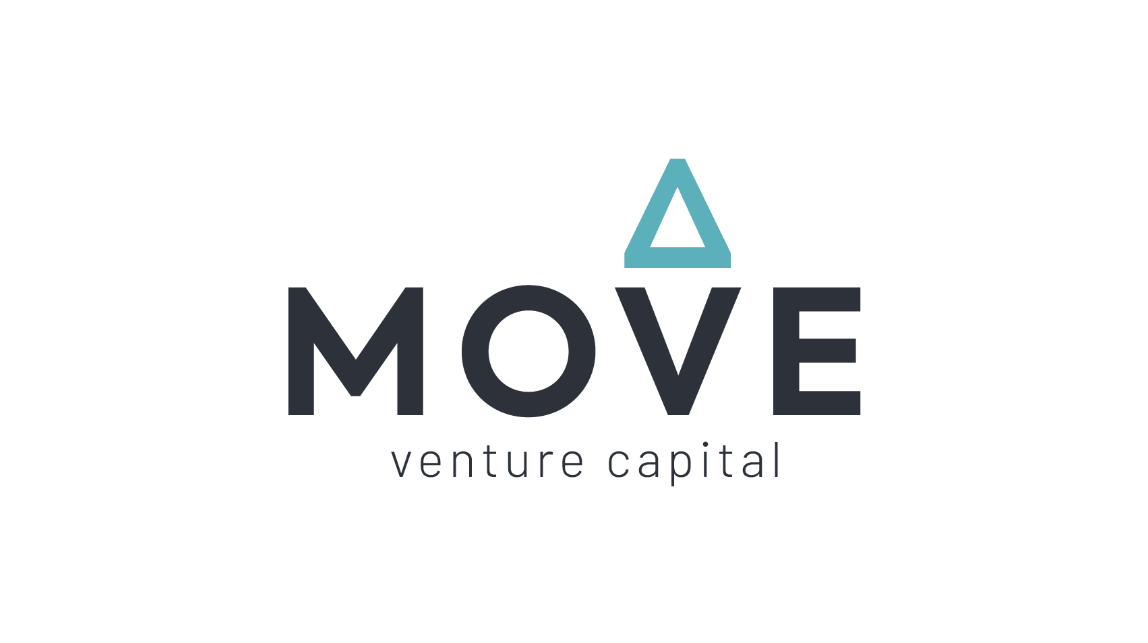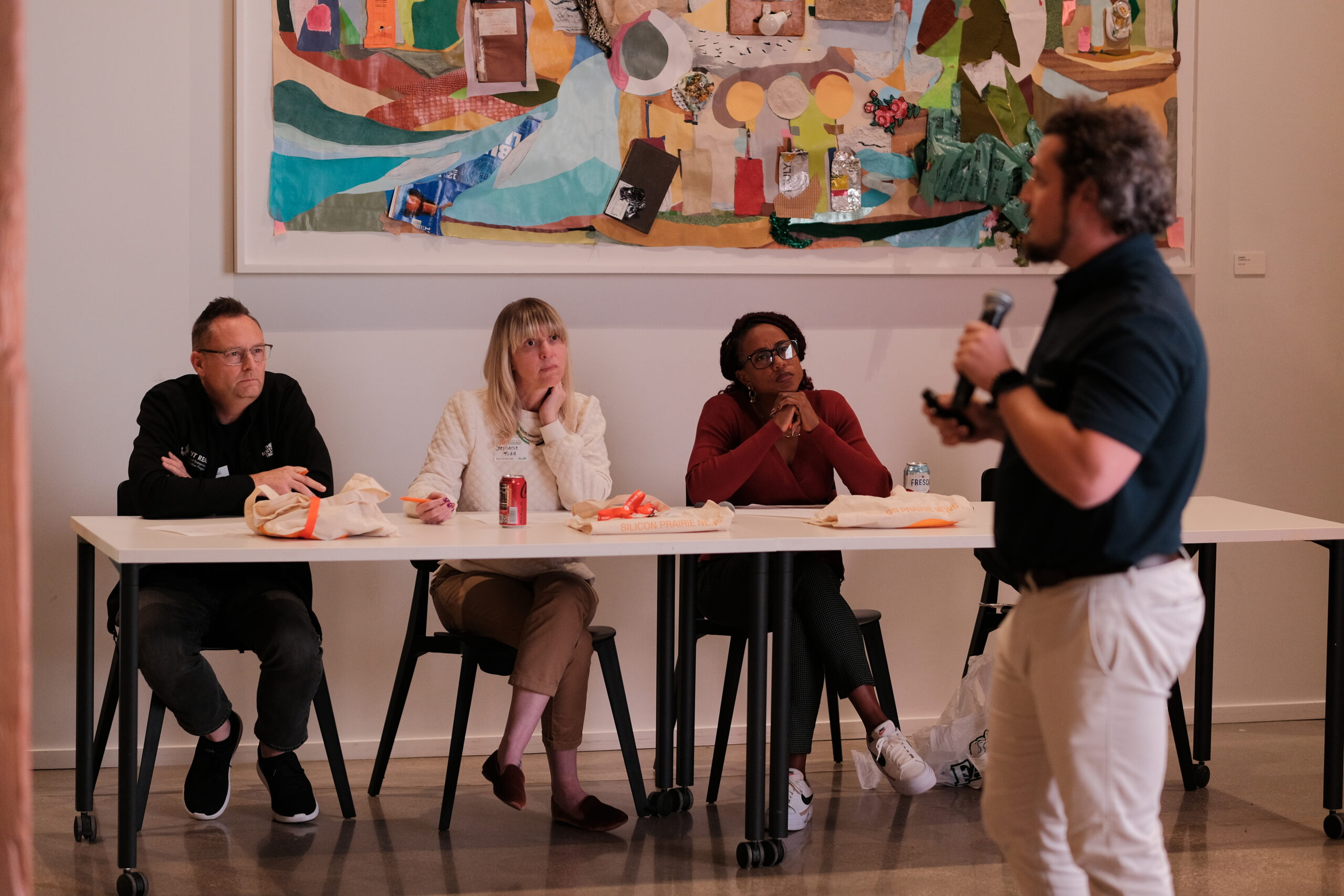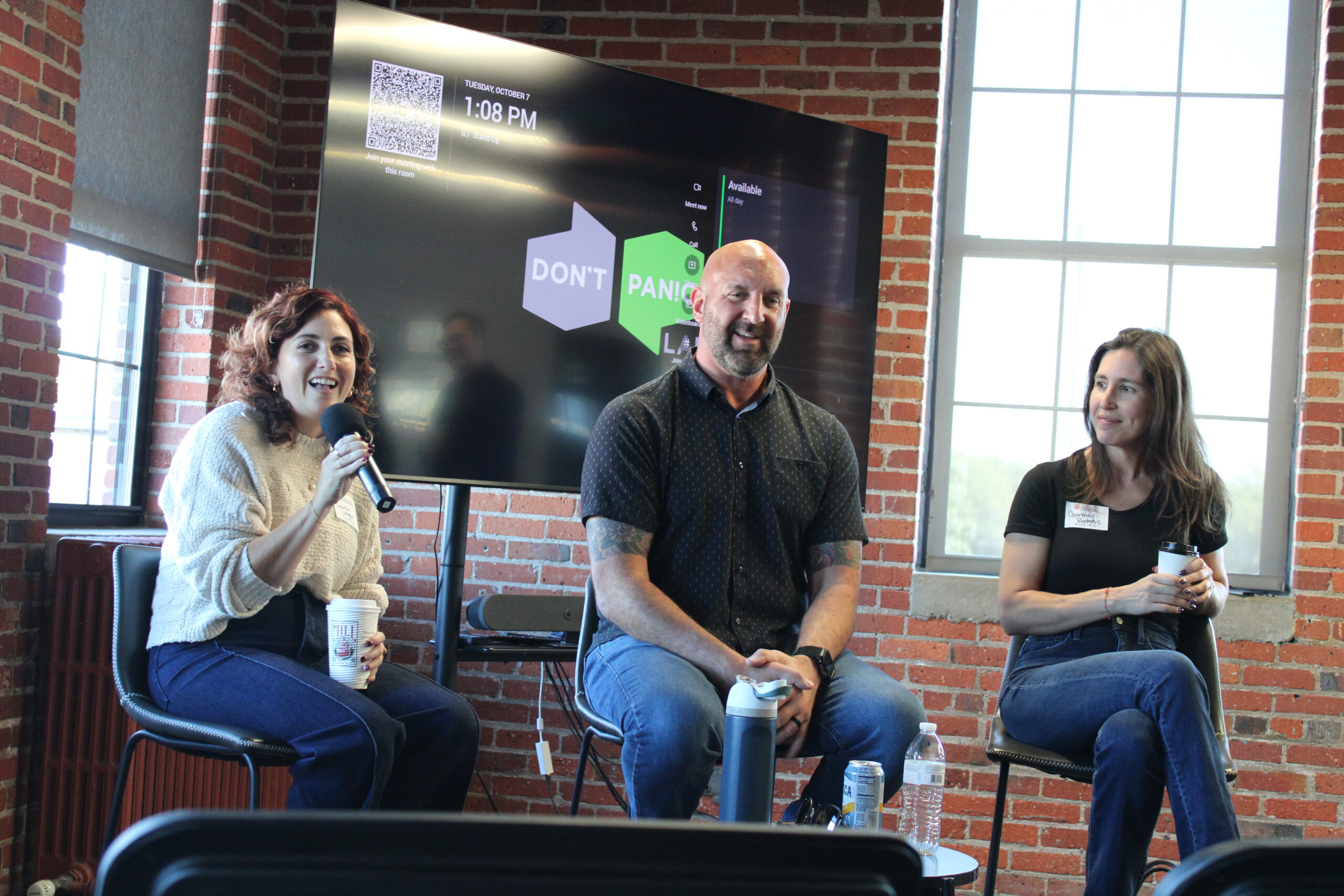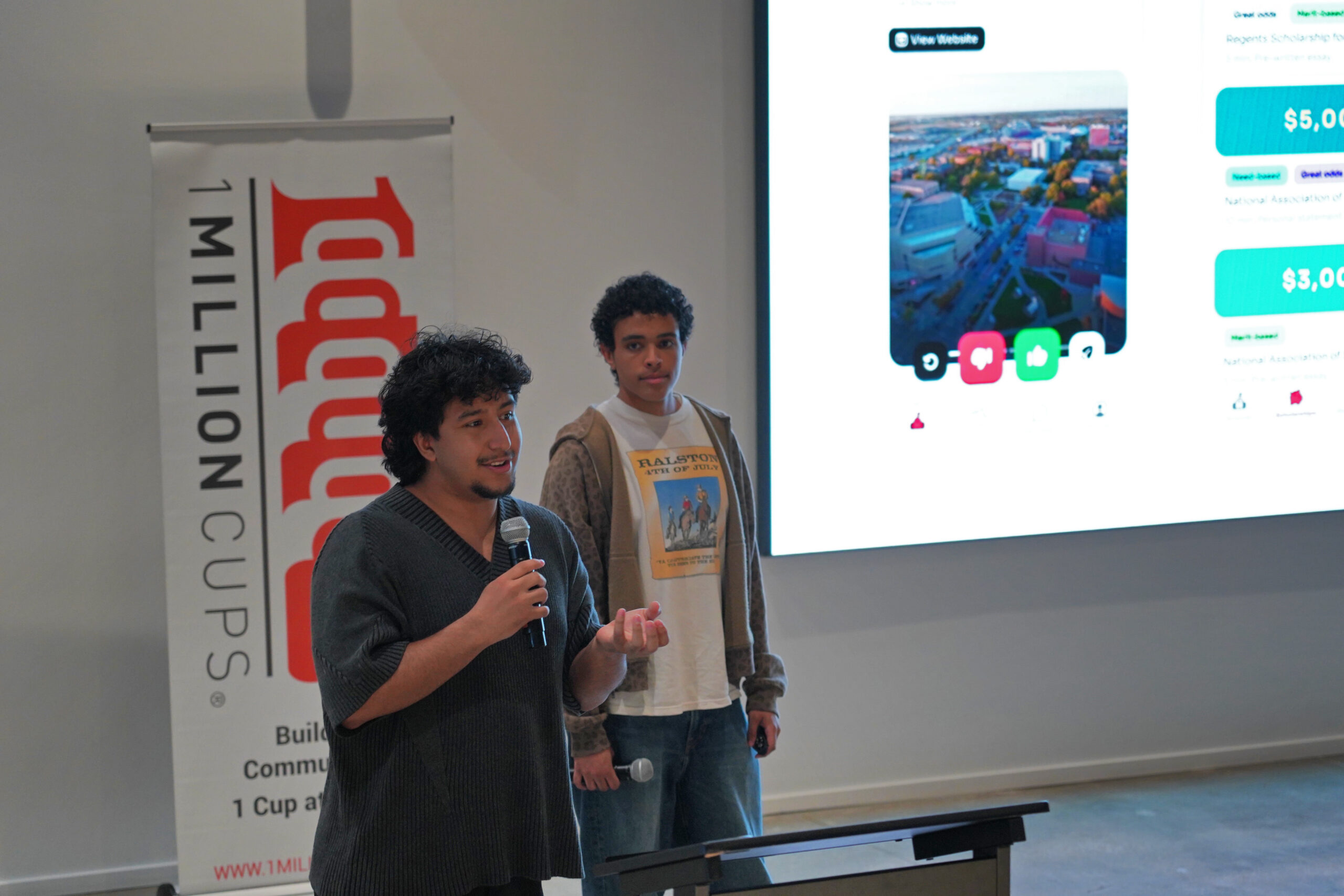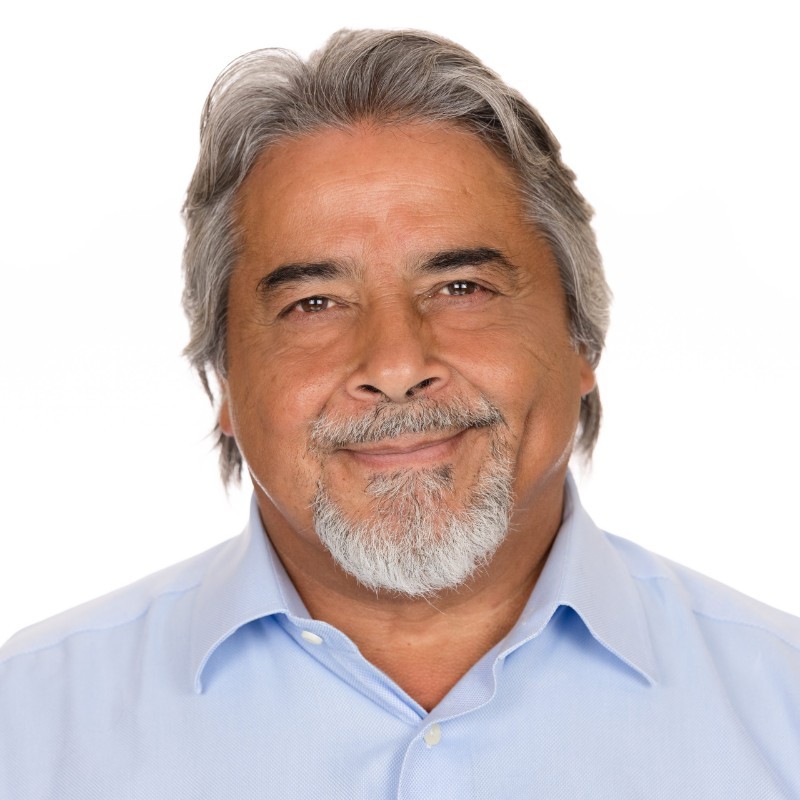


Early stage founders in Nebraska have a new resource for funding and education with the launch of MOVE Venture Capital in January 2023.
MOVE Venture Capital’s $10M fund one is focused on investing in pre-seed and seed stage companies in Nebraska with high growth potential. MOVE has already invested in nine companies — writing checks between $50k-$100k in exchange for an equity stake. The fund is industry agnostic with portfolio companies that span artificial intelligence, software, ag industry technology and more.
Keep scrolling to see a list of MOVE’s current portfolio companies further down in the story.
SPN recently connected with managing partner Charlie Cuddy to learn more about the firm, its progress since launching in January and MOVE’s plans for the future.
Need a reminder of what venture capital is and definition of common vc-related terms? Check out Part 1 of our Venture Capital Guide.
How it started
MOVE was founded by Cuddy and general partners John Grange and Manny Quevedo with the intention to “back Nebraska founders and people with Nebraska ties that have traditionally had a hard time raising capital,” according to Cuddy.
Grange and Quevedo, both serial founders, understand the difficulty of raising venture capital to start a Nebraska-based business. “They’ve both had a hard time getting the first check,” Cuddy said.
Cuddy said that generally Nebraska investors tend to be more risk averse compared to investors in other parts of the county. They look for significant revenue before “going all in” on a company.
“That’s a major roadblock for startups that aren’t able to self fund to get started.”
Eventually Grange and Quevedo received backing from investors outside of Nebraska. Then they were both “lucky enough” to have significant windfalls from exits early in their careers so they could self fund many of their subsequent ideas, Cuddy said. “Manny had a nine figure exit at one of his first startups. John scaled a startup out of his dorm at UNO to a top five global Microsoft hosting provider.”
The MOVE founding team wants to make it more likely that Nebraska founders get startup capital from a Nebraska investor, rather than relying on investors from out of state.
“Getting that first check can be the difference between something that could take you 18 to 24 months and you can get there in six,” Cuddy said. “Time to market because you have financial backing is always interesting [to investors] at the early stage.”
Before starting MOVE, Cuddy was working for Jason Calacanis’ LAUNCH startup accelerator in Silicon Valley. There, Cuddy created Founder University.
“It was a platform to help founders validate an idea, launch an early stage MVP and ultimately try and get that first round of funding or get accepted into an accelerator after bringing on those first customers and understanding how to build out a team.”
Cuddy built Founder University and ran the first four cohorts.
Cuddy said he started to see an increase in Nebraska founders from his network showing up in the virtual Founder University programming. These Nebraskans, Cuddy said, were searching for early funding opportunities that they weren’t finding in their home state.
“We wonder why we can’t get more diversity across founders, across ideas,” Cuddy said. “And then we force people to self fund for the first 6-12-18 months. There’s only small pockets of people that can do that. So you tend to see the same people get multiple at bats and other people not get any. That’s part of what we’re looking to address.”
How it’s going
So far MOVE has made nine of the 65-75 investments they plan to deploy from their first fund. Cuddy said the firm will likely make follow-on investments ranging between $100,000 and $250,000 to around 15 companies in their portfolio. The end result: MOVE plans to own an equity stake between 2%-10% of the companies in which it invests.
The current portfolio companies are Nebraska-based and from a range of industries. Seven investments have been announced with another two companies still in stealth mode.
Cuddy said the MOVE portfolio is diverse “from both a product perspective and a founder perspective.” He estimates that one-third of the companies at this stage have a female co-founder and more than half have a founder or co-founder who is a person of color. “Which we’re really excited about, especially in a state like Nebraska.”
These are the current portfolio companies as of June 2023.
MOVE Portfolio Companies
- Engage Vision is an AI-powered analytics system quantifying what happens inside a physical space by leveraging existing cameras and computer vision.
- Open Spot is a SaaS app that helps healthcare practices automatically fill spots from last-minute cancellations via waitlist and text.
- ThermOptical is a patented ultrafast short pulse laser used to enhance the capabilities of materials and alloys such as copper, aluminum, nickel and silicon carbide for multiple climate tech applications.
- Nave Analytics fuses satellite signals with telemetry from irrigation pivots to provide data-enabled solutions to advise ag professionals on efficient, scalable and cost-effective water usage.
- Nightfox Audio is a SaaS platform that provides a sampling of instruments so musicians can start creating music digitally via a plugin.
- Microwash is a fast, pain-free and self-contained nasopharyngeal irrigation device designed to collect specimens from your nose.
- Peeq is a platform to improve the hygiene of the eyelid and the eye, including their patent-pending device, the Peeq Waiva, and subscription-based eyelid and facial cleanser. (Co-created by designer Alan Tipp.)
- Two more investments are “in stealth” at the moment.
- One is a computer vision company.
- One is a logistics company.
One difference Cuddy noted about investing in Nebraska vs. Silicon Valley: It takes significantly less money here to start a company.
“$100k, $500k, $1M can go a long way here in Nebraska. That allows founders to not need to raise as much capital and still have outsized returns for an LP in a fund,” Cuddy said.
Besides making early stage investments, the MOVE team is committed to providing resources and education to early stage and aspiring founders via VC Office Hours. These events are produced through the Nebraska Startup Academy — MOVE’s nonprofit arm. VC Office Hours happen weekly following 1 Millions Cups in Omaha and monthly or bi-monthly following 1 Millions Cups in Lincoln.
“We knew there was a demand for education and a craving for community,” Cuddy said. So the team decided to leverage events like 1 Million Cups where they could encourage people in their network to attend and hopefully connect with other event attendees in order to create “interesting collisions for people in our…surroundings.”
The team started with a goal of meeting 200 people in VC Office Hours by the end of 2023. So far they’ve connected with more than 160 people in five months.
“We’re just trying to get a feel for where the gaps are in education.”
Find out how MOVE plans to use the learnings from VC Office Hours in the follow up article on what’s coming next and final takeaways from the team.

